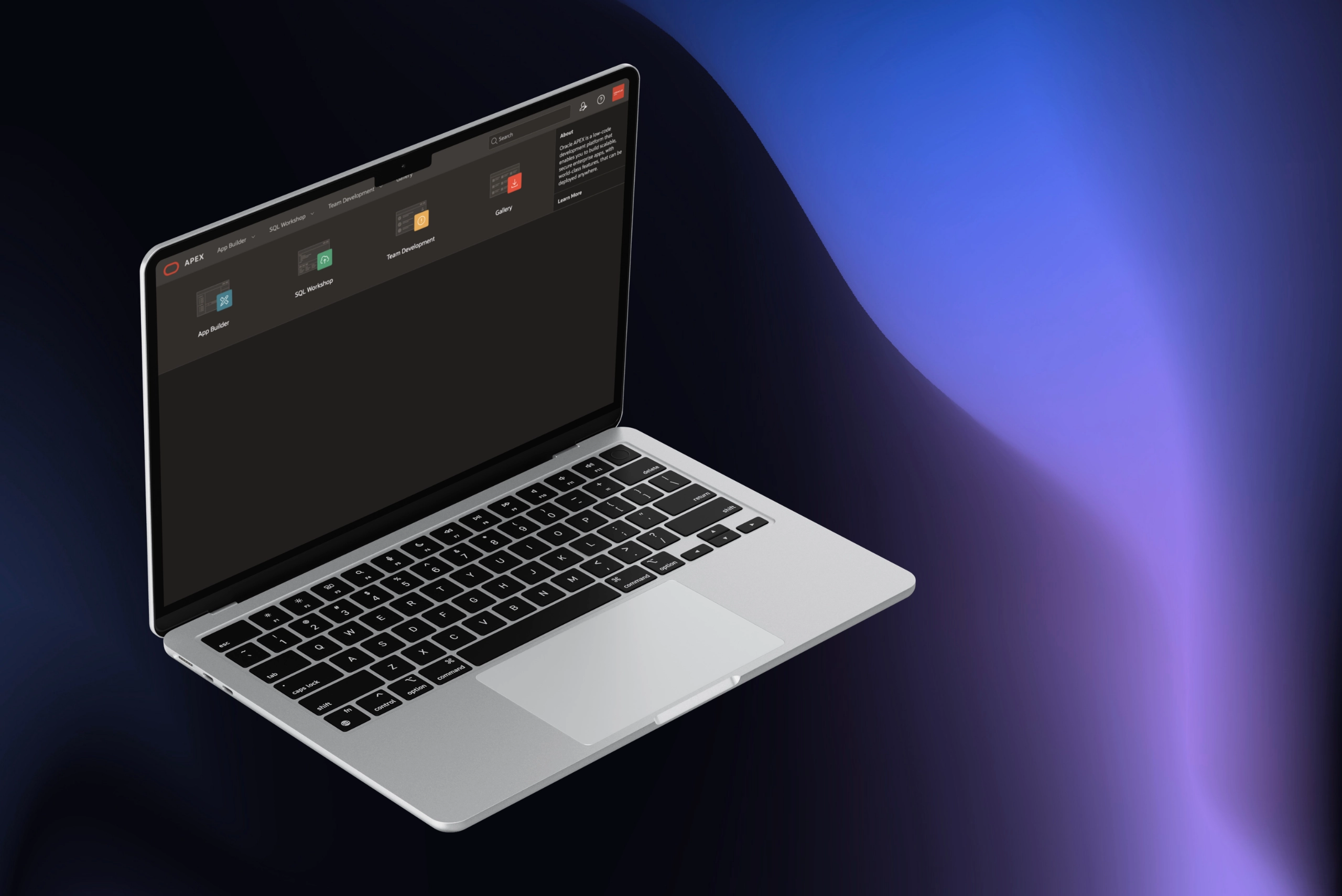
Introduction
Oracle APEX is a well-known low-code platform that allows for rapid application development inside the Oracle ecosystem. While it has its advantages, especially for small to mid-sized projects, Morphis Tech takes a different route when it comes to modernizing large-scale enterprise systems.
We don’t use Oracle APEX — and there’s a reason for that. Actually, several.
What Is Oracle APEX?
Oracle Application Express (APEX) is a low-code development platform built into the Oracle Database. It enables developers to build web applications quickly, often without writing much code. APEX is tightly coupled with Oracle infrastructure, making it an attractive choice for teams already deeply embedded in Oracle’s ecosystem.
While APEX may be an ideal solution for departmental or internal apps, its limitations surface quickly when scaling across business units, integrating with non-Oracle systems, or requiring cloud flexibility.
Why Morphis Tech Doesn’t Use APEX for Modernization
1. Vendor Lock-In
APEX apps are tightly integrated with the Oracle Database and infrastructure. That’s convenient—until it isn’t. Vendor lock-in limits flexibility in cloud adoption, interoperability with external systems, and total cost of ownership in the long term.Modernizing to Java or .NET opens the door to multi-cloud or hybrid strategies, API-centric architectures, and database agnosticism.
2. Scalability Challenges
Enterprise workloads often demand more than what a low-code platform can offer. APEX apps may struggle to scale gracefully with complex logic, high concurrency, or modern DevOps practices.
Java and .NET, by contrast, are battle-tested in mission-critical environments, powering everything from financial systems to global logistics.
3. Limited Talent Pool
The market for skilled APEX developers is narrow. Recruiting and retaining talent familiar with APEX becomes increasingly difficult as demand for modern development practices grows.
Java and .NET, in contrast, are supported by large global communities, comprehensive tooling ecosystems, and a deep talent pipeline.
4. Customizability and Extensibility
While APEX provides rapid prototyping, its flexibility is constrained compared to full-stack frameworks. Enterprise modernization often requires deep integration with APIs, advanced authentication, microservices, and modern UI/UX paradigms.
Java and .NET allow developers to build applications tailored to current and future needs without compromise.
Why Morphis Tech Modernizes to Java or .NET
At Morphis Tech, we help enterprises modernize to open, scalable, and future-ready platforms. That means Java or .NET — and here’s why:
- ✅ Scalability: From small internal systems to high-load public apps, Java/.NET scale with ease.
- ✅ Flexibility: Easily integrate with any database, API, or cloud service.
- ✅ Security: Mature frameworks support enterprise-grade security and compliance.
- ✅ Maintainability: Support modern CI/CD, testing, and version control practices.
- ✅ Community & Tools: Access to a vast global developer network and extensive libraries.
We also preserve your core business logic during the transition, minimizing risk while maximizing return.
Real Impact, Real Results
Clients come to us thinking they need to “rebuild everything.” They leave with a performant, scalable system — without the stress of rewrites or risky lock-in.
As Sue Cammer, Database Manager at Miami-Dade County, puts it:
“They are phenomenal. They do everything they can to make us successful. We stay with them because we know what they can do.”
FAQs
Is Oracle APEX bad for modernization?
Not necessarily. APEX is powerful in certain contexts, like rapid internal app development or simple database apps. But it falls short for long-term enterprise-grade modernization needs.
Can APEX scale with enterprise workloads?
To a point. But for complex, high-performance systems, the scalability of Java or .NET is far superior.
Why choose Java or .NET over low-code?
Low-code is great for prototyping or non-critical workflows. Java and .NET offer flexibility, control, and long-term viability, essential for core business systems.
Does Morphis Tech support partial modernization?
Yes. Our approach preserves your core business rules while modernizing the technology stack, minimizing risk and avoiding full rewrites.
Conclusion
Oracle APEX is not a bad tool — it’s just not the right one for every job. For enterprises aiming to future-proof their infrastructure, modernization demands scalable, interoperable, and cloud-friendly architectures.
At Morphis Tech, we help clients migrate from Oracle Forms and legacy systems to Java or .NET, unlocking performance, flexibility, and long-term ROI.
Ask us why clients thank us later — and how we can do the same for your business.
References
- Oracle APEX Overview – Oracle
https://apex.oracle.com/en/ - Java Enterprise Scalability – Oracle
https://www.oracle.com/java/technologies/java-ee-glance.html - .NET for Enterprise Applications – Microsoft
https://dotnet.microsoft.com/en-us/apps/aspnet - Morphis Tech Modernization Solutions
https://www.morphis-tech.com
Find out how Morphis can enable your digital reinvention
Send download link to:


Leave a Reply